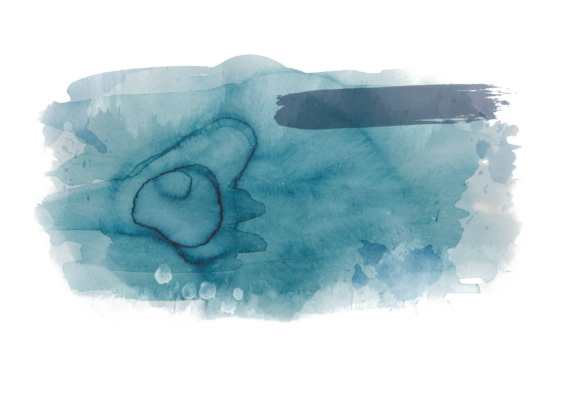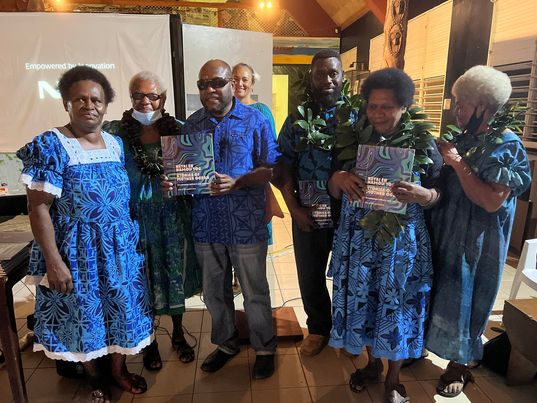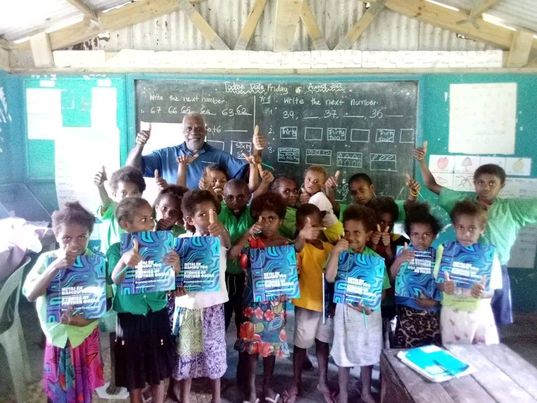Connecting with indigenous knowledge through art-based research: Netai en Namou Toc at COP27

One Ocean Hub is thrilled to announce that our community-led art-based research project Netai en Namou Toc (Stories of Mother Ocean) will be showcased at the Moana Blue Pacific Pavilion at COP27 on Thursday 17 November, 10.00-10.55am (Egypt time). Led by the Erromango Cultural Association in Vanuatu, the project foregrounds indigenous knowledge of the sea through an illustrated children’s book. Customary stories and oral histories are presented alongside information about centuries old rock art, trade routes, fishing methods, poisoning remedies, wind names and maritime navigation.
Partnerships and engagement at COP27
Our COP session, Indigenous Knowledge and Inclusive Ocean Governance: A Case Study from Vanuatu, focuses on the importance of indigenous knowledge about the ocean to strategies of adaptation, resilience and youth empowerment in Vanuatu.
As Pacific Island States mitigate unprecedented oceanic damage and loss, the session focuses on the importance of intergenerational knowledge transmission to empower youth to bolster resilience. Bringing together representatives from academia, civil society and government, the session advocates community-based art practice as an inclusive research methodology that provides an opportunity for equitable participation of grassroots organisations who are often excluded from international dialogue and debate about ocean and climate policies.
The event provides an opportunity to reflect on the pressing need to value and respectfully integrate Pacific knowledge systems in strategies for national, regional and international ocean governance. In this context the role of intangible heritage in asserting cultural rights to ocean ecosystems will also be discussed. Against the backdrop of sea-level rise, ocean acidification and prospective deep-sea mining, the session advances arguments to ensure ocean sustainability and a safe climate for the human right to a healthy environment.
The Hub is delighted to be collaborating with a wide range of organisations for the event, highlighting the importance of transdisciplinary working relationships. We gratefully acknowledge our session partners: Erromango Cultural Association, Ground and Justice Party, Vanuatu Cultural Centre, National University of Vanuatu, Vanuatu Meteorology and Geo-Hazards Department, Glasgow School of Art and University of Strathclyde.
National engagement
The illustrated children’s book has been enthusiastically embraced by the community whose knowledge it preserves and promotes. A launch at the Vanuatu Cultural Centre in July was followed by an event and blessing with the Erromango Natmonuk Island Council of Chiefs and a series of presentations on the island where the book was distributed to school children. Meticulously researched and richly illustrated, the publication has been widely celebrated in local print, radio and television media.

Photo: Erromango Cultural Association

Photo: Erromango Cultural Association
Background on the Hub’s DEEP Fund
Netai en Namou Toc is supported by the One Ocean Hub’s Deep Emotional Engagement Programme (DEEP) Fund, an innovative programme of community-led art projects that explore emotional connections to the ocean. A key part of the broader inter- and trans-disciplinary work across the Hub, DEEP Fund projects represent a transformative research approach to understand and convey the social, cultural and spiritual meanings of these connections. The DEEP Fund has commissioned artistic responses that elevate marginalised voices in national and global debates about ocean governance, amplifying the views of under-represented groups often overlooked by conventional approaches to marine science and management. The DEEP Fund’s work contributes to human rights protection through knowledge co-production.
The DEEP Fund is an innovative funding approach developed by One Ocean Hub that specifically seeks to engage communities who may not normally have access to such research funding opportunities. Beyond the requirement for projects to be related to the ocean, themes and media were left intentionally unspecified. This allows projects to foreground issues that matter most to their communities rather than responding to external commissioning criteria. Selection was primarily based on the potential of the creative process to surface emotional connections to the ocean and how each project could become part of broader research activities which explore they ways these vital community connections can ultimately inform policy making.
The DEEP Fund projects of One Ocean Hub contribute to advancing understanding of the cultural connections, distinctive knowledge systems and customary norms of small-scale fishers, other ocean-dependent communities, women and children, with a view to informing ocean and climate research and governance, in order to ensure respect for their human rights.
Prof Stuart Jeffrey and Dr Lisa McDonald are One Ocean Hub researchers, based at the School of Simulation and Visualisation, Glasgow School of Art.